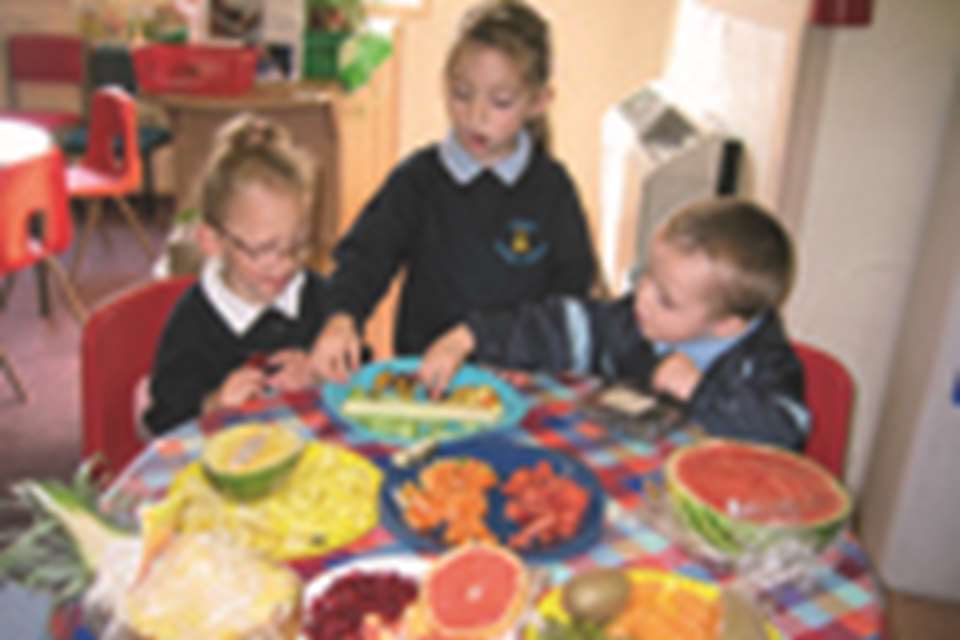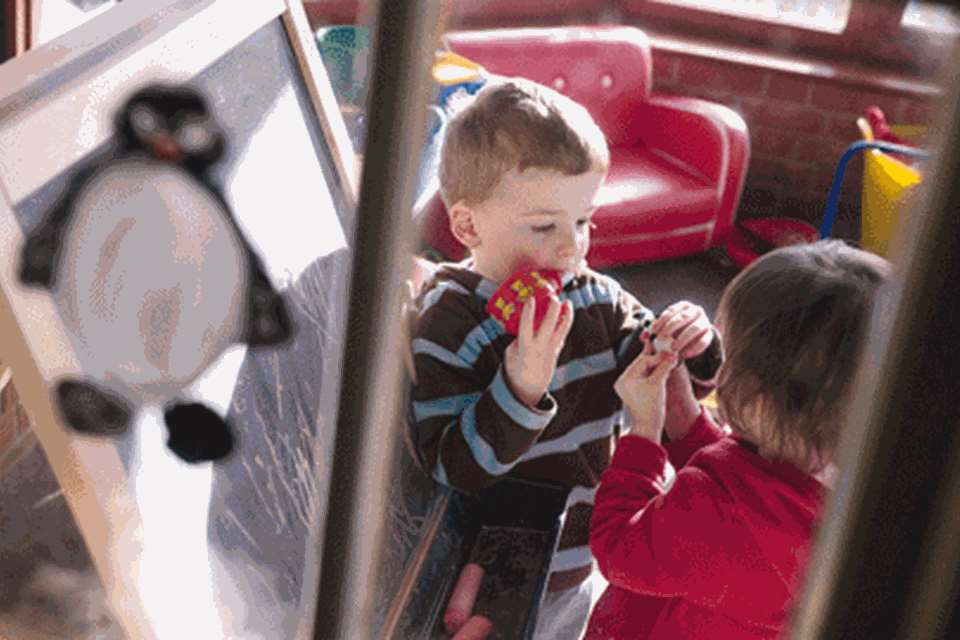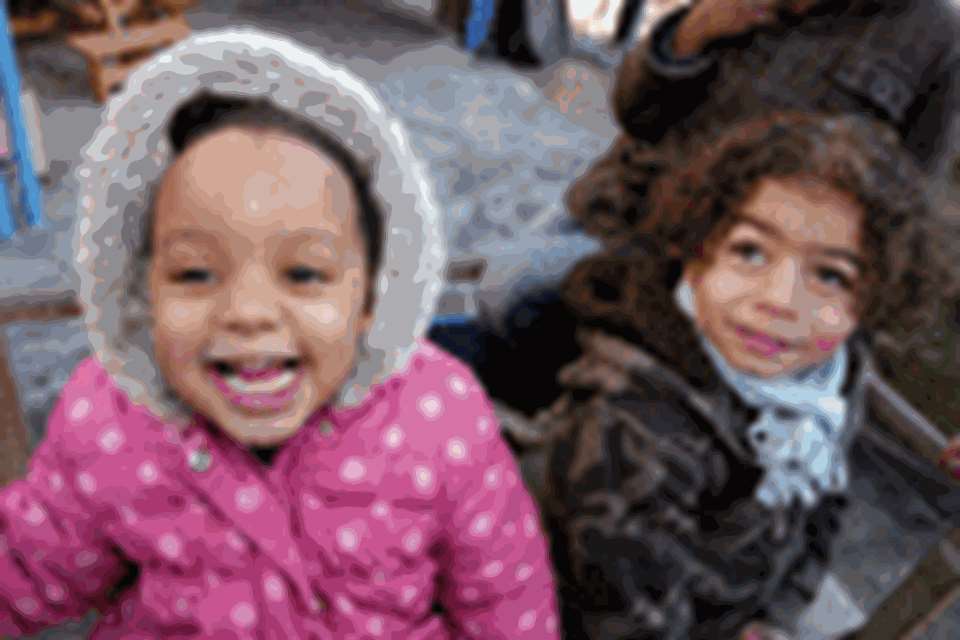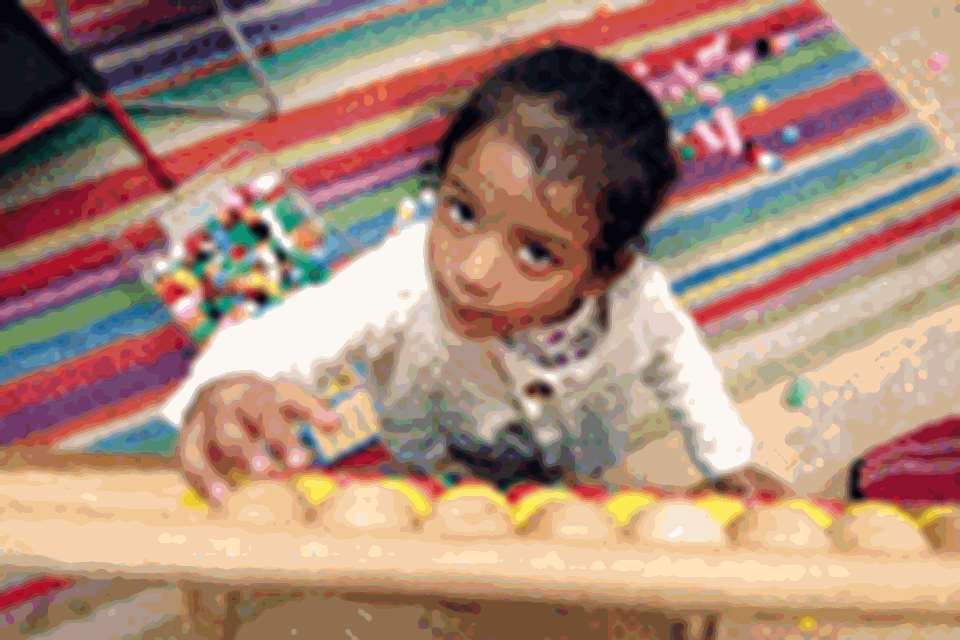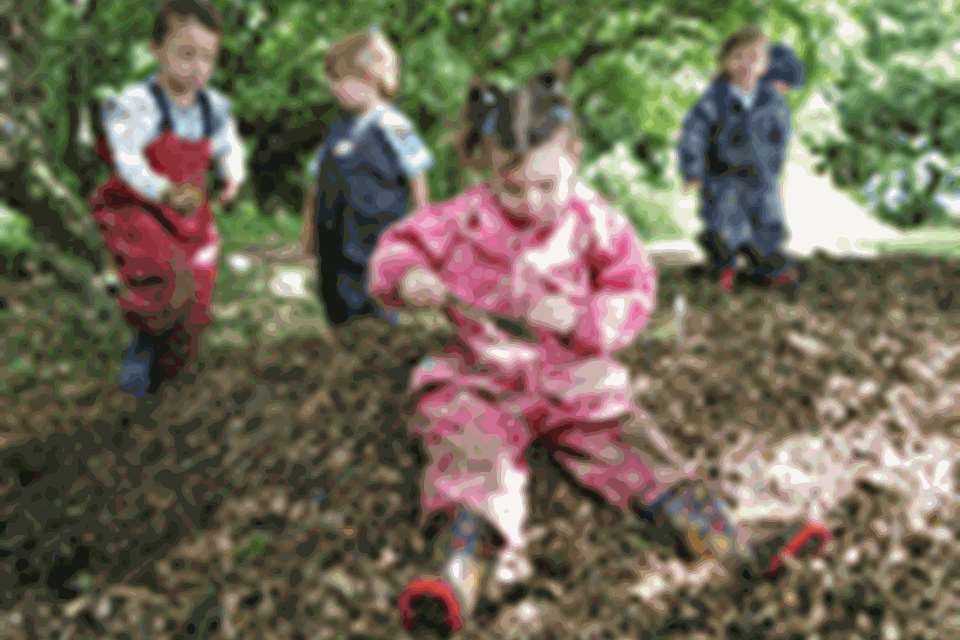A Unique Child: Well-being - All very well
Julia Manning-Morton
Monday, August 25, 2014
A research project looking at well-being in the early years has underlined some important factors to consider for this vital area of childcare.
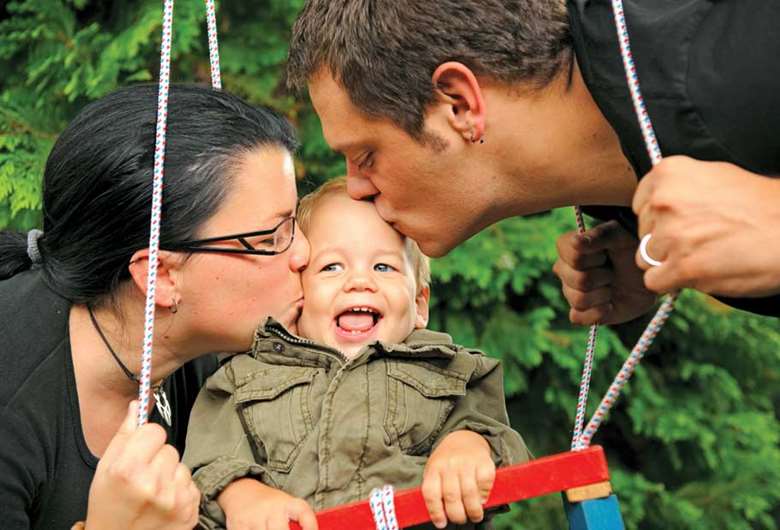
When colleagues from the Early Childhood Forum at the National Children's Bureau (NCB) and Early Childhood Studies at London Metropolitan University (LMU) got together in 2009 to discuss our ideas about well-being, the phrase was being used a lot.
It was central to Every Child Matters (DfE)1 and the focus of research by Unicef (2007)2 - so was also common in discussions in the early childhood field.
However, it seems that in the context of the current economic environment, looking after the well-being of all our youngest citizens is seen as a luxury the UK is no longer willing to afford. But in Exploring Well-being in the Early Years, I suggest that perhaps it is in such difficult times that we need to be even more focused on the well-being of children, the well-being of parents and the well-being of practitioners, too.
What is well-being?
Participants in the LMU-NCB Talking About Well-Being project identified that exploring our ideas about well-being is important because if our aim is to promote children's well-being we need to be clear what it is we are promoting and why.
The ideas about well-being that derived from the project discussions are that well-being is not about just being okay, coping or surviving; well-being is about thriving, blossoming and flourishing. Overall, we suggest that well-being is dynamic and mutable - in contrast to an idea of it being a state to be achieved like yet another learning goal.
The idea that it can change according to circumstances, that it can be damaged and restored and that this continues throughout life was inherent to all the discussions.
From this perspective, well-being needs predisposing factors to be in place for us to be able to experience it. These factors are both internal and external. Factors that are internal can be enhanced or impaired by external social factors, but how we interpret and engage with those external factors will be influenced by our inner capacity for well-being.
Parents and practitioners suggested different images that represented these aspects of well-being.
For example, an 'inner glow' - which represents the internal, subjective aspects of well-being usually associated with emotional well-being and the positive sense of self gained from secure early relationships.
Another example is a set of Russian dolls, representing the external, social factors that impact on well-being, with the child as the smallest doll in the middle whose well-being is affected by the well-being of the adults caring for them, whose well-being is affected in turn by their financial and social circumstances, which is affected by local and national economic and social circumstances and policy. This reflects an ecological systems approach (Bronfenbrenner, 1979)3 to children's learning and development.
The first part of Exploring Well-being in the Early Years focuses on these external factors, particularly the impact of poverty and inequality.
What do young children say about well-being?
Children were engaged in the project by their key person involving them in research activities using the 'Mosaic Approach' (Clark and Moss, 2011)4. They consistently identified outside spaces as their preferred environments and put a lot of emphasis on the quality of their relationships; mothers and friendships were identified as key determinants of their well-being.
Their views might be summarised by 'I feel happy when I'm playing something I like, outside, with friends who are nice to me', and from the observations of the youngest children, with mummy nearby (and also with nice food).
Two other key issues arose indirectly from the consultations with the children: the importance of the here and now and the importance of being listened to. Their focus on their current situation, environment or activity as influencing their well-being revealed the importance for them of being in the present. It is what is happening now that is relevant for young children's well-being, not just their future outcomes.
Similarly, the approach of the research process impacted positively on the children's well-being as practitioners identified that the one-to-one conversations, the focused observations and adopting a 'listening approach' (Williams, 2009)5 had been invaluable in increasing their understanding of their children's well-being. This was echoed by the children, who explicitly and obviously enjoyed the conversations and being listened to. As one child asked, 'When can we have chitter-chatter?'
Practice contexts that support children's well-being
All this information from children, parents and practitioners suggests that we think young children's potential to experience well-being is enhanced when the following are in place (note that numbers 6 and 7 focus on the importance of the well-being of adults living with and caring for very young children):
1. Children's emotions are accepted and understood in close, consistent relationships.
2. Their experiences are congruent with their idea of who they are and their unique interests are valued
3. Their friendships are nurtured and valued from birth, enhancing their sense of group belonging.
4. They have free access to interesting and challenging play materials and spaces indoors and outdoors, in the setting and in the community.
5. They have opportunities for free-flow imaginative play outdoors.
6. Their families, whatever form they take, are supported and valued.
7. Their professional carers are valued and supported for all their skills knowledge and attributes.
8. They have a strong sense of belonging to their setting and local community, where they are listened to, acknowledged and affirmed; their contribution is sought and valued.
9. They are taken into account in society as a whole, so national and local policies ensure that all children's needs can be met by their families and communities.
Making Connections
Another image that was used a lot in the project was that of a web: this represents the interconnectedness of all aspects of well-being and a holistic perspective, which means that the well-being of the whole child must be attended to by thinking about all aspects of their well-being.
In Exploring Well-being in the Early Years, I suggest that in contrast to a curriculum that divides children's experiences up into areas of learning, a holistic approach would suggest a 'Connections' curriculum that focuses on:
- - connections between people in the setting
- - connections between each individual child and the group
- - connections with places and things
- - connections between thinking, feeling, playing and learning.
The Happiness Counts Project (Aked et al, 2009)6 suggests that European countries that perform better than the UK on child well-being indicators have a pedagogical approach that focuses on working 'with the whole child: body, mind, feelings, spirit and creativity'. It is this approach that we suggest should be adopted in order to promote the well-being of babies and young children in the UK.
REFERENCES
1. Department for Education and Skills (2004). Every Child Matters: Change for Children, www.education.gov.uk/publications (accessed 7 January 2013)
2. UNICEF (2007). Child Poverty in Perspective: an overview of child well-being in rich countries, Innocenti Report Card 7, 2007 UNICEF Innocenti Research Centre, Florence, www.unicef-irc.org/publications/pdf/rc7_eng.pdf
3. Bronfenbrenner, U (1979). The Ecology of Human Development: experiments by nature and design, Harvard University Press
4. Clark, A and Moss, P (2011) (2nd ed). Listening To Young Children - The Mosaic Approach, London: National Children's Bureau
5. Williams, L (2009). 'Listening as a way of life'. London: The Young Children's Voices Network, National Children's Bureau. Available at www.ncb.org.uk (accessed 15/2/13)
6. Aked, J Steuer, N Lawlor, E and Spratt, S (2009) Backing the Future: why investing in children is good for us all. London: New Economics Foundation and Action for Children
MORE INFORMATION
Exploring Well-being in the Early Years, edited by Julia Manning-Morton, is published by Open University Press.


